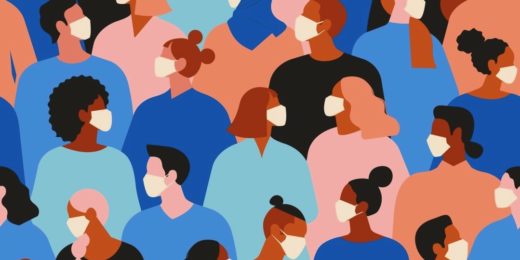While misinformation continues to circulate around masking, the science paints a clear picture: wearing a mask is an effective way to stop the spread of COVID-19, primarily by preventing the wearer from infecting others.
Consider the recent case in Springfield, Missouri: two hairdressers tested positive for COVID-19, exposing nearly 140 clients to infection. Yet, not a single client contracted the disease. Why? Experts credit a simple policy: a citywide ordinance that required people to wear masks in the salon.
Despite compelling evidence -- countries with widespread masking have fared better in the pandemic and states with mask mandates have lower infection rates -- the United States remains a patchwork. Many states, including Missouri, have opted not to implement masking mandates. Even more worrisome is that refusing to wear a mask in public has become a political statement in many corners of our country. As a health care professional and leader of an academic medical center located in an early COVID-19 hotspot, it is disheartening to witness.
Infections are surging in this country. We now have over 5 million cases, and daily deaths continue to increase in many states. Although the United States accounts for just 4% of the world population, we account for 22% of global COVID-19 deaths. Public health experts confirm that Americans' resistance to masks has contributed to our failure to contain this pandemic, compared to other wealthy nations.
To be clear: many Americans report regularly wearing masks in public, but a loud and growing minority is adamantly refusing. They argue that mask mandates infringe on their liberties or that the danger of COVID-19 has been overblown for political reasons. While this debate may seem new, we've been here before.
Three lessons from smoking bans
Despite well-documented health consequences of indoor smoking, efforts to ban the behavior were met with intense political resistance and an all-too-familiar civil liberties debate, just as we see today. But science, combined with social and political initiatives that were responsive to public concerns, eventually spurred a large-scale shift in public opinion around smoking bans. From this experience, three lessons can inform how to improve adherence to universal masking -- a life-saving public health measure:
- Frame masking as a workers' rights issue: Originally, smoking bans were presented as a workplace protection measure. COVID-19 presents a similar threat -- only this time, the danger posed is more insidious; with so many asymptomatic cases, it can be hard to tell when someone is ill. Our responsibility to protect front line workers, who cannot earn a living from home, is about worker safety. But more than that, it is about equity. We know that front line workers facing the highest risk of exposure are disproportionately from minority and low-income households.
- Mandates are necessary because they work: The history of smoking bans shows that mandates work on two fronts. First, when enforced, they can rapidly curb health behaviors that put others at risk. And second, they work by establishing new social norms. We're at the point where businesses now enforce smoking bans without local edicts, and there's some evidence that masking is following a similar path. An increasing number of businesses, including retail giants like Walmart, CVS and Target have enacted their own nationwide mandates independently of local regulations.
- Don't lose sight of the last mile: Mandates alone can't drive normalization. As the history of smoking shows, changing norms requires meeting people where they are: leading with empathy, acknowledging concerns, steering away from shaming, and making compliance as effortless as possible, like Utah has done. Framing matters, too. Research has shown that people are more likely to quit smoking if the act is framed as a way to protect loved ones. That approach may work for masking as well.
Finally, and perhaps most importantly, health care professionals must emphasize their credibility to their patients and communities on the issue of masking. As the smoking debate has shown us, health care professionals play a unique and incredibly potent role in influencing social norms.
In a world where scientists must battle rampant misinformation, most people trust their doctors, even as trust in other institutions erodes. And there's a reason: doctors are tasked with keeping people safe, politics aside. That, fundamentally, is what mask mandates are meant to do.
Lloyd Minor, MD, is dean of the Stanford School of Medicine and a professor of otolaryngology-head and neck surgery. This piece originally appeared on his LinkedIn page.
Photo by Markus Winkler






